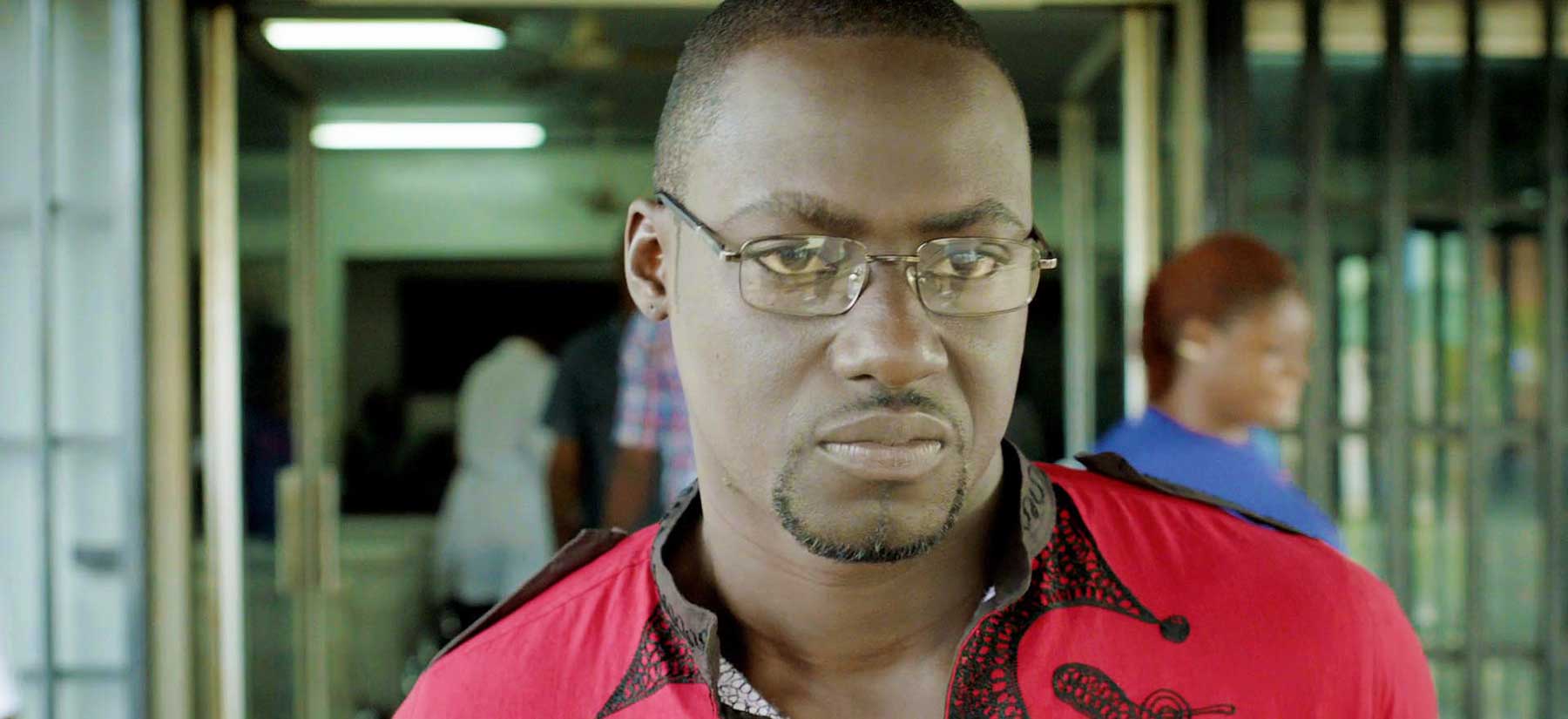Chris Attoh speaks out against domestic violence
News
30/10/2014

We spoke to Chris Attoh about the new Shuga Comic book, and his views on gender-based violence in Africa.
The Shuga comic book has arrived! If you were transfixed on the turbulent storyline on Nii and Malaika in the Shuga TV series, then you won’t want to miss the expanded story in the comic.
We spoke to Chris Attoh, who plays Nii in the Shuga TV series, about his character and gender-based violence in African households.
Shuga: So, how does it feel to see yourself in comic form? What do you think of your comic character?
Chris Attoh: It’s cute; I’m actually admiring myself. This is the first time I am seeing myself in comic form and now I know how I look like as a cartoon! I just showed it to my wife and I think people will go crazy over it.
S: We’re glad you like it! How do you think reading the Shuga comic book can help young people?
CA: I personally grew up on comics. There was no TV at that time, so the comics were great company. I’d like to think that the generation of today is still interested in comics and still find this medium interesting. It touches on a very serious issue such as gender-based violence. This comic book educates and makes people aware of the realities of such violence and what the dangers of it are.
The story literally takes you there and it tries to educate people about what could happen when the situation gets really bad, and young people need to be made aware of this.
I am excited to read one of the comics myself!
S: We’re excited too! What role do you think neighbours, family, or friends play in helping women who have experienced gender-based violence?
CA: First of all, the neighbour or friend has got to be close enough to know there is a violent relationship between two people. Offering advice would be a start, but you’d have to tread carefully as you’d be getting into people’s personal business. If the situation gets worse I’d advise that the neighbour or friend reports any instances of violence to the police.
S: So are there any actions that Malaika’s friend, Sophie, took in the comic that you agree or disagree with?
CA: If you see anybody in danger, you’re going to want to do whatever you can to help, and I think that’s what Sophie’s character does for Malaika.
S: And are there any actions that Malaika took in the comic that you agree or disagree with?
CA: In real-life incidents, people shouldn’t take things into their own hands (like Malaika did running Nii, my character, over with a car), that’s why the authorities are there. You don’t want to get to a point when the situation is that dire.
S: If you could advise Malaika on her situation, what would you say?
CA: No matter how much you’re in love with someone, you cannot lose yourself completely in the other person, once you have a partner who would lock the door behind you, and beat you, something has got to be wrong.
I’d call Malaika and say this is not a good idea and get some help. It’s not always a matter of leaving the partner; most people can get help in such a relationship.
It is important to remember that this is a serious situation and there are a lot of young women that are in the situation that can relate to Malaika’s character.
No one has the right to touch you. No one has the right to lay their hands on you. You need to recognise the signs right from the beginning. You can’t keep telling yourself that he is going to change, or he loves me, or I deserve this. Nobody deserves that. You need to remember that it usually will escalate.
S: Right, sometimes it is hard to just leave a relationship. What do you think the barriers are for women in African households looking for support when facing gender-based violence?
CA: I think Africa is a continent that is still very much glued to its cultures and values; which is why even sometimes in a bad situation you might find relatives saying that at the end of the day, he is your husband, that women need to do what he says and need to conform. I am not encouraging any kind of disrespect in the marital home, of course, but at the end of the day, shows like Shuga need to remind these women of their basic, fundamental human rights, which is, if someone is inflicting harm on you, it is the moment to do something about it.
There is a lot of awareness growing now, which is a good thing. I’ve had people come to me and tell me the show [Shuga] is changing their lives; especially Nii and Malaika’s story. It is one of the strongest messages dealt with in this season.
S: That’s great to hear! Last question, what advice would you give to young women in the same situation as Malaika?
CA: Is this the last question? Aww no! [Laughs]
S: Finally, why do you think a show like Shuga is important, what’s its unique-selling point?
CA: Generations have changed. We are a generation that is hugely affected by what we watch, and shows like Shuga act as a platform where audiences are not only educated but also entertained. We are using mediums like this to reach out to people.
There have been people that have gotten tested for HIV just from watching the show and it makes me happy to know I have been a part of that.







comments
Log In or register to comment